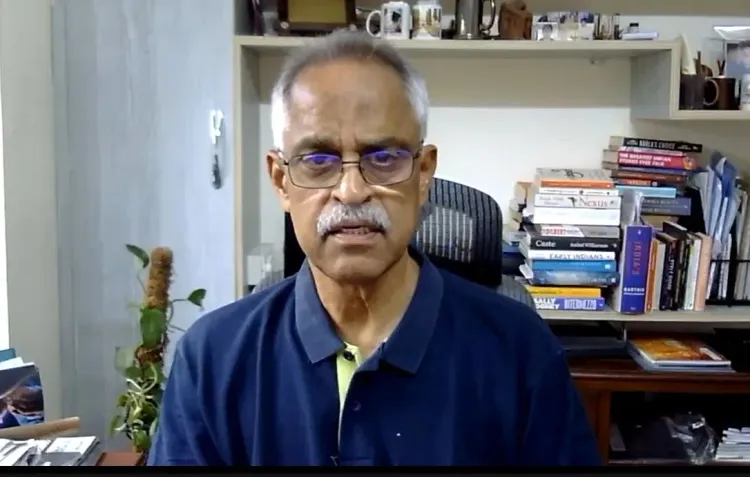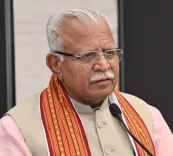What Does India's GDP Growth Rate of 7.8% Indicate?

Synopsis
Key Takeaways
- India's GDP growth rate reached 7.8% in the April-June quarter.
- This growth is the highest in five quarters.
- Former CBEC Chairman Najib Shah emphasized the strong fundamentals of the Indian economy.
- The Union government credits this growth to the performance of the agricultural sector and services.
- Experts believe this growth will help achieve the vision of 'Viksit Bharat 2047'.
New Delhi, Aug 30 (NationPress) The Indian economy has recorded an impressive growth of 7.8 percent during the April-June period, marking its highest growth rate in the last five quarters. This remarkable achievement comes in spite of the potential challenges posed by the import tariffs introduced by US President Donald Trump. Numerous economists and analysts have expressed their support for the Union government led by Prime Minister Narendra Modi.
According to Najib Shah, the former Chairman of the Central Board of Excise and Customs (CBEC), this significant growth in GDP reflects the strong fundamentals of the Indian economy. In an interview with IANS, Shah noted that the GDP growth has surpassed the expectations of many economists, who had forecasted a growth rate ranging between 6.5 percent. He pointed out that the Economic Survey had anticipated a growth rate between 6.3 and 6.8 percent.
Shah elaborated, "This GDP growth has resulted in a substantial gross value addition of 7.6 percent. While there are inevitable challenges ahead due to the uncertainty surrounding the impact of US tariffs on our GDP, we should take a moment to celebrate this remarkable growth rate of 7.8 percent."
The Union government's statement attributes this robust GDP figure to the strong performance of the agricultural sector and services, including trade, hospitality, finance, and real estate.
Chartered Accountant Rajiv Sahu shared his thoughts on India's GDP reaching 7.8 percent, stating, "It brings joy to every Indian that the GDP growth has hit 7.8 percent in the first quarter, especially when compared to the 6.5 percent growth during the Financial Year 2024-25. This signifies a notable improvement, a testament to the effective governance of the current Modi administration, coupled with the implementation of ongoing structural reforms across the nation."
Sahu added, "This progress in GDP growth will propel the country closer to the vision of 'Viksit Bharat 2047', aiming to position India as the world's third-largest economy and achieve the $5 trillion economy goal. This growth will positively impact the citizens, enhancing per capita income and providing benefits to economically disadvantaged groups. The Union government can leverage this growth to roll out more initiatives aimed at empowering and uplifting the economically backward segments of society."






